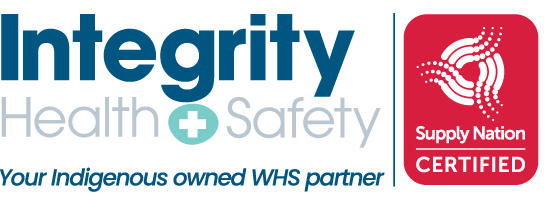In a landmark move to improve public safety and emergency response outcomes, South Australia has introduced legislation that mandates the installation of Automated External Defibrillators (AEDs) in a wide range of public, commercial, and community buildings. The decision reflects the critical role AEDs play in saving lives during cardiac arrest events — a medical emergency that can strike suddenly and without warning.
If you’re a business owner, property manager, or workplace leader, understanding these new requirements is not just a legal obligation but also a critical responsibility when it comes to protecting the health and safety of the people in your care. In the event of a sudden cardiac arrest, having an AED on site — and ensuring it’s accessible, registered, and functional — could mean the difference between life and death.
Why the Legislation Matters
Every year, over 33,000 Australians suffer sudden cardiac arrest. Without rapid intervention, the chance of survival diminishes by 10% for every minute that passes. AEDs are designed to be used by untrained bystanders, delivering a controlled shock that may restore a normal heart rhythm.
By placing AEDs in more public and private spaces, the South Australian Government aims to significantly increase survival rates and improve health outcomes in emergency situations. The legislation is a proactive measure to empower communities and workplaces to respond swiftly and effectively when every second counts.
Note that this is only a summary of the South Australian legislation and you should read the Automated External Defibrillators (Public Access) Act 2022 itself.
Who Must Comply with the New Rules?
The legislation is comprehensive, targeting a broad range of facilities where people gather, work, or reside. If your business or organisation falls into any of the following categories, the new AED laws apply to you:
- High-traffic public spaces – including shopping centres, transport hubs, community halls, and stadiums.
- Educational institutions – such as schools, childcare centres, TAFEs, and universities.
- Healthcare facilities – including general practices, hospitals, aged-care homes, and clinics.
- Sports and recreation venues – gyms, aquatic centres, and sports complexes.
- Workplaces – from traditional office settings to warehouses, construction sites, and manufacturing facilities.
- Accommodation providers – including hotels, motels, hostels, and caravan parks.
- Entertainment venues – cinemas, theatres, concert halls, and nightclubs.
If you’re responsible for the safety of people in any of these environments, it’s crucial to start planning your AED compliance strategy now.
Key Deadlines You Need to Know
The legislation sets out clear compliance deadlines based on property ownership:
- Crown-owned buildings must comply by 1 January 2025
- Non-crown-owned buildings must comply by 1 January 2026
These deadlines provide a short window for procurement, installation, registration, and training. Organisations that fail to meet the deadline may face penalties of up to $20,000, in addition to being unprepared in the event of a cardiac emergency.
What Type of AED Should You Buy?
Not all defibrillators are suitable under the new law. To comply with South Australia’s legislation:
- Your AED must be approved by the Therapeutic Goods Administration (TGA)
- It should meet the guidelines of the Australian and New Zealand Resuscitation Council
These standards ensure that the equipment is safe, effective, and reliable. At Integrity Health & Safety, we supply a wide range of TGA-approved AEDs that are trusted by leading organisations across Australia, including Woolworths, DFAT, ATO, Commonwealth Bank, Lendlease, and EY.
Our defibrillators are designed to be user-friendly and are backed by expert support to help your staff understand how to respond confidently in an emergency.
How Many AEDs Are Required?
The number of AEDs required varies depending on the size and nature of your facility:
- If your building is used for commercial purposes, you will need 1 AED for every 1,200 square metres of applicable floor area.
- For all other types of prescribed buildings, 1 AED per building or facility is the minimum requirement.
- For larger premises or multi-level buildings, it may be necessary to install additional AEDs to ensure accessibility within a reasonable timeframe during an emergency.
Our team at Integrity Health & Safety can assist in conducting site assessments to help determine the optimal number and placement of defibrillators.
Registration Requirements
Installing an AED is not the final step — registration is also a key part of the legislation. All AEDs must be registered with either the South Australian AED Register or the GoodSAM App, a mobile-based system that helps emergency services and community responders quickly locate nearby defibrillators in a crisis.
Proper registration ensures your AED is discoverable and can be activated in an emergency response network. It also verifies your compliance with the new legislation and supports broader public safety goals across the state.
How Integrity Health & Safety Can Help
Integrity Health & Safety is more than just a supplier — we are a partner in creating safer, healthier communities. Founded by two Indigenous intensive care paramedics with Australian Defence Force and United Nations experience, our business is built on real-world healthcare knowledge and a deep commitment to community impact.
We provide:
- A curated range of TGA-approved AEDs
- Expert guidance on compliance and procurement
- Assistance with installation, signage, and placement
- On-site and online training to help your staff respond with confidence
Don’t Leave Compliance to the Last Minute
If you are based in South Australia, with strict deadlines and steep penalties, it’s essential to begin your AED compliance planning today.
AND, if you are based elsewhere in Australia, it is prudent to ensure that you have sufficient defibrillators installed.
Taking action now ensures that your business or facility is prepared to save a life when every second counts.
Get in touch today for expert advice and customised solutions.




Comments are closed.